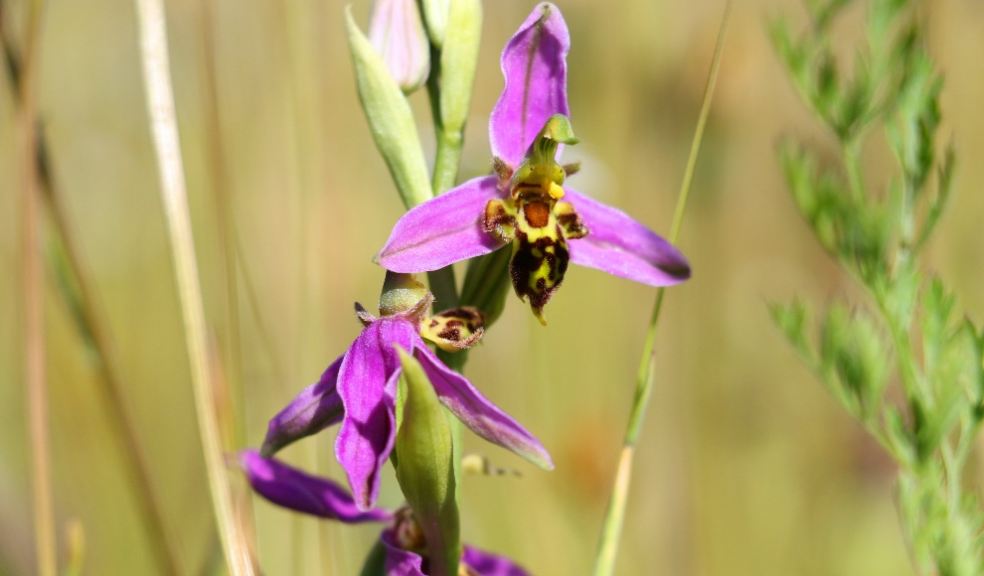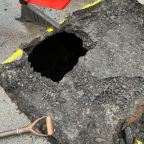
Orchids galore as donkeys play key role in wildflower conservation
A scheme that allows donkeys to help with the management of a wildflower meadow at The Donkey Sanctuary’s headquarters in Sidmouth has blossomed into a dazzling display of orchids.
At the end of last summer, rescued donkeys Paddy and Kelley were walked through a wildflower meadow at the site in Sidmouth as part of their routine training and exercise.
Now the wildflowers are blooming, and the charity’s conservation team are recording an increase in both numbers and species of wildflower, which could be partly down to the efforts of Paddy and Kelley.
It was hoped that as the donkeys walked through the meadow their footfall and disturbance would knock seeds from wildflowers, help fix plant seeds into the soil and create good conditions for seed germination in the spring.
The sanctuary’s conservation team and volunteers, who have been managing the meadow for a few years, have counted record numbers of bee orchids and common spotted orchids, while southern marsh orchid and ragged robin are now blooming there for the first time.
As part of the sanctuary’s conservation work, ways are being explored in which donkeys can help manage habitats, and in turn benefit from living in an enriched environment.
Donkeys graze species-rich grassland at two sanctuary sites in East Devon, which again has resulted in an increase in the presence and diversity of wildflowers. Donkeys benefit nutritionally and can express a wider range of behaviours when foraging in this type of habitat, which is important for their welfare and wellbeing.
Alongside the resident donkeys playing their part in managing grassland, volunteers work with the conservation team to manage areas at several sanctuary sites in ways that encourage wildlife and increase biodiversity.
One such example includes the use of low-impact methods such as traditional scythes to cut grass and bracken, causing far less disturbance than modern machinery would.
At the main visitor site at Sidmouth, the sanctuary’s maintenance team have revised their mowing schedules and work hard to encourage wildflowers to thrive along the miles of memorial walkways that criss-cross the site while ensuring supporters can continue to enjoy walking around the site.
Native grasses and wildflowers provide food, shelter and breeding sites to a wide range of insects. Records at the Sidmouth site include common carder bee and hoverflies as well as small skipper, marbled white and common blue butterflies.
Insects are essential food for threatened farmland birds such as skylarks and linnets, as well as bats including the brown long-eared bat, greater horseshoe bat and serotine, all of which are regularly recorded at the sanctuary.
The Donkey Sanctuary is a global leader for equine welfare, research and veterinary care. The charity operates programmes worldwide for animals working in agriculture, industry and transportation.













